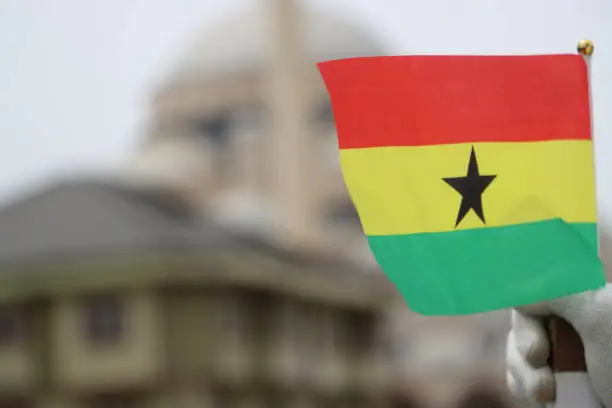Ghana temporarily closes embassy in Washington D.C. over corruption scandal
3 min read
Ghana closes its U.S. embassy after a major visa fraud scheme, vowing reforms and accountability.
Visa fraud scheme prompts full staff recall and forensic audit as Accra vows to rebuild trust.
The government of Ghana has temporarily closed its embassy in Washington, D.C., following the exposure of a serious corruption scandal involving fraudulent visa processing and unauthorized financial transactions. The decision, announced on Monday by Foreign Affairs Minister Samuel Okudzeto Ablakwa, comes as part of a broader crackdown on irregularities in Ghana’s diplomatic missions abroad.
Speaking at a press briefing in Accra, Ablakwa described the closure as a “necessary and responsible move” aimed at restoring transparency, accountability, and public trust in Ghana’s foreign service. “This is part of a decisive effort to restructure and overhaul embassy operations following shocking audit findings,” he said. “With the support of President Mahama, we are taking bold action to fight corruption and rebuild trust.”
Unauthorized Visa Payments and IT Scheme Uncovered
The scandal centers on Fred Kwarteng, a locally hired IT officer who had worked at the embassy since 2017. A recent special audit discovered that Kwarteng created an unauthorized payment link on the embassy’s official website, diverting visa and passport applicants to his private company, Ghana Travel Consultants (GTC). There, applicants were charged unofficial fees ranging from $29.75 to $60, with all payments deposited into Kwarteng’s personal bank account.
According to investigators, the scheme ran undetected for at least five years, during which hundreds—possibly thousands—of applicants were unknowingly charged improper fees for consular services that should have followed standard government procedures. The audit revealed a “deliberate effort to bypass official financial channels and exploit unsuspecting applicants,” raising serious concerns about oversight and internal controls at the mission.
Embassy Staff Recalled, Forensic Audit Underway
In response, the Ministry of Foreign Affairs has recalled all embassy staff posted to Washington, D.C., back to Ghana. The embassy’s entire IT department has been dissolved, and all locally recruited personnel have been suspended while investigations continue. Minister Ablakwa emphasized that the case has been formally referred to the Attorney-General’s Office for criminal prosecution and recovery of public funds.
He also confirmed that the Auditor-General will conduct a comprehensive forensic audit to determine the full scope of the financial loss and identify any other potential irregularities. “We will not tolerate abuse of office or the exploitation of Ghana’s name and institutions,” Ablakwa stated. “This is about more than just one individual—it’s about ensuring our systems are resilient and secure.”
Impact on Services and Government’s Stance
The closure of the embassy is expected to cause significant disruption to Ghanaians and foreigners seeking consular services, including visa applications, passport renewals, and document authentications. However, the Foreign Affairs Ministry has indicated that services will resume only after the restructuring process is completed, and sufficient safeguards are put in place.
“We recognize the inconvenience this may cause, but firm action is necessary to clean up the system,” Ablakwa said. “The government of President Mahama maintains a zero-tolerance policy toward corruption, abuse of office, and conflicts of interest.”
Diplomatic sources in Washington confirmed that the Ghanaian mission has halted all public-facing operations for the time being. The Embassy’s official website has also been temporarily disabled while the unauthorized link and other digital vulnerabilities are addressed.
Although no official date has been given for the embassy’s reopening, officials say efforts are underway to restore safe, transparent, and accountable operations as quickly as possible. Meanwhile, applicants are being advised to delay non-urgent applications or seek assistance through Ghana’s other diplomatic missions in North America.
The scandal has sparked widespread public discussion in Ghana, with civil society groups and transparency advocates calling for wider anti-corruption reforms across all diplomatic posts.





